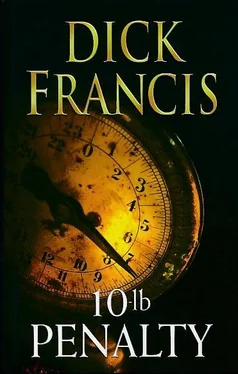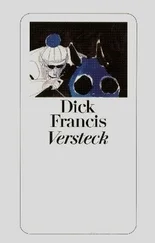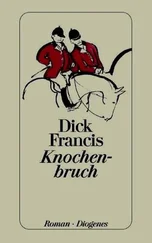Dick Francis - 10 lb Penalty
Здесь есть возможность читать онлайн «Dick Francis - 10 lb Penalty» весь текст электронной книги совершенно бесплатно (целиком полную версию без сокращений). В некоторых случаях можно слушать аудио, скачать через торрент в формате fb2 и присутствует краткое содержание. Город: London, Год выпуска: 1997, ISBN: 1997, Издательство: Michael Joseph, Жанр: Триллер, на английском языке. Описание произведения, (предисловие) а так же отзывы посетителей доступны на портале библиотеки ЛибКат.
- Название:10 lb Penalty
- Автор:
- Издательство:Michael Joseph
- Жанр:
- Год:1997
- Город:London
- ISBN:978-0-7181-4245-2
- Рейтинг книги:3 / 5. Голосов: 1
-
Избранное:Добавить в избранное
- Отзывы:
-
Ваша оценка:
- 60
- 1
- 2
- 3
- 4
- 5
10 lb Penalty: краткое содержание, описание и аннотация
Предлагаем к чтению аннотацию, описание, краткое содержание или предисловие (зависит от того, что написал сам автор книги «10 lb Penalty»). Если вы не нашли необходимую информацию о книге — напишите в комментариях, мы постараемся отыскать её.
10 lb Penalty — читать онлайн бесплатно полную книгу (весь текст) целиком
Ниже представлен текст книги, разбитый по страницам. Система сохранения места последней прочитанной страницы, позволяет с удобством читать онлайн бесплатно книгу «10 lb Penalty», без необходимости каждый раз заново искать на чём Вы остановились. Поставьте закладку, и сможете в любой момент перейти на страницу, на которой закончили чтение.
Интервал:
Закладка:
“Yes. How do you know?”
“Why didn’t you ask for my help?”
“I didn’t think of it.”
“I despair of you, Ben.” He didn’t, though, sound particularly annoyed.
He had been talking to one of the Weatherby cousins at a dinner in the City, he said. The web of insider chat in the City far outdid the Internet.
I asked if I could move Sarah’s Future from Devon.
“Find a trainer.”
“Thanks.”
Spencer Stallworthy grumbled. Jim shrugged: life always moved on. I parted from them with gratitude and vanned my chestnut pal to a new home.
Weatherbys took me into their racing operations department, which handled entries, runners, weights, riders, the draw: all the details of every race run in Britain, amounting to about a thousand transactions most days and up to three thousand at busy times.
All this computer speed took place in airy light expanses of desks and floor space, and in the calm quietness so impressive on my first visit. I’d thought that at a couple of days over twenty-one I might be at a disadvantage from youth, but I found at once that the whole staff were young, and enjoyed what they were doing. Within a month I couldn’t imagine working anywhere else.
Every so often my own name cropped up, both whenever I was actually racing, but also in the next-door department of racing administration, which dealt with records of owners. It became a sort of running joke — “Hey, Juliard, if you race that nag again at Fontwell, he’ll suffer a 7-lb. penalty,” or “Hey, Juliard, you carried overweight at Ludlow. Cut down on the plum duff!”
Sarah’s Future, as far as I could tell, enjoyed the exchange of the soft air of Devon for the brisker winds of farther north. He still acknowledged my morning arrivals with much head nodding and blow breathing down his wide black nostrils, and he seemed to think it normal that I should embrace his neck and tell him he was a great fella, and mean it.
Those who say there can be a true fusing of animal/ human consciousness are probably deluding themselves, but after several intimate years of speed together, that chestnut and I were probably as near to brothers as interspecies relationships could get.
One Saturday, about a year after I’d started at Weatherbys, the horse and I lined up at Towcester for an uneventful three-mile ’chase, my father’s inconspicuous colors of gold and gray made even less discernible by a persistent drizzle.
No one on the stands seemed afterwards to be sharply clear what happened. From my point of view we were rising cleanly in a well-judged takeoff to a big black open ditch fence coming up the hill towards the straight. Another horse tripped and crashed into us, knocking Sarah’s Future completely off balance. He had jumped that fence expertly several times over the past years: neither he nor I was expecting disaster. His feet were knocked sideways. He landed in a heap, throwing me off forwards. I connected with the ground in one of those crunching collisions that tells you at once that you’ve broken a bone without being sure which bone. I heard it snap. I rolled, tucking my head in to save it from the hooves of the runners behind me. The remainder of the field of half-ton horses clattered over my head as I lay winded and anxious on the slippery grass with blades of it in my mouth and up my nose, and dislodging my goggles after an uncontrollable slide.
The clamor of the contest faded away towards the next fence. Two horses and two jockeys weren’t going to be worrying about that. The horse that had crashed into Sarah’s Future scrambled to its unsteady feet and trotted off as if dazed, and his unseated rider bent over me with “Are you all right, mate?” as his best effort at an apology.
I gripped his hand to haul myself to my feet and found that the bone I’d broken was somewhere in my left shoulder.
Sarah’s Future, also on his feet, was trying to walk but succeeding only in hobbling around in a circle. He couldn’t put any weight on one of his forelegs. A groundsman caught him by the bridle and held him.
In hopeless love for the horse I walked over to him and tried to will it not to be true, not to be possible that after so long this closest of companionships should have so suddenly come to the edge of a precipice.
I knew, as every rider of any experience knew, that there was nothing to be done. Sarah’s Future, like Sarah herself, was going to eternity in my hands.
I wept. I couldn’t help it. It looked like the rain. The horse had broken his near foreleg. His jockey, his left collarbone.
The horse died.
The jockey lived.
Ten
My father had discontinued the insurance of Sarah’s Future when I went to work for Weatherbys; partly, he’d said, because the horse was getting old and lessening in value and partly, punctiliously, so that if the horse were killed, Weatherbys would not have to pay up.
He would hear no apologies when I telephoned him. He briefly said, “Bad luck.”
When I went back to work two days after Towcester the man who had originally interviewed me drew up a chair at my desk and said, “We used to insure that horse of yours, of course.”
I explained why my father had let the insurance lapse.
“I didn’t come to talk to you about your loss,” the Weatherbys man said, “though you do have all my sympathy. And is your arm all right? I came to ask you whether you would be interested in transferring yourself from here into our insurance services department, to work there from now on.”
The insurance department, mainly one long room walled by books, more books and files and more files, was inhabited also by two men in their twenties. One was leaving the firm. Would I like his place?
Yes, I would.
Promotion struck the Juliards twice in one week. Another internal upheaval shuffled the cards in the government, and when the hurt feelings settled, my father had moved sideways and upwards to the Cabinet as minister for agriculture, fisheries and food.
I congratulated him.
“I would have preferred secretary of state for defense.”
“Better luck next time,” I said flippantly.
My father’s resigned sigh came down the wire. “I suppose you’ve never heard of Hudson Hurst?”
“No.”
“If you think I’m going up fast, he’s going up faster. He beat me to Defense. He’s currently the can-do-no-wrong flavor of the year with the prime minister.”
“How’s Polly?” I asked.
“You’re incorrigible.”
“I’m sure the jellied eels and the brontosaurus burgers will be safe in your hands.”
There were for once no agricultural crises looming, and both he and I spent the autumn of that year rooting ourselves comfortably in new realms.
Not a great deal to my surprise I took to insurance with energy: it not only satisfied my inclination to numbers and probabilities, but I got sent out fairly often on verification trips, to see, for instance, if the polo ponies I was asked to set a premium for actually existed.
As Evan, my co-worker and boss in the insurance department, preferred office work and computers, I did more and more of the legwork, and it seemed to be a useful arrangement all around, as I knew what good stables looked like and fast developed a nose and an instinct for the preparatory arrangements for a ripoff. Preventing insurance fraud at the planning stage became a game like chess: you could see the moves ahead and could put the knights where they would zigzag sideways for the chop.
A great advantage, it transpired, was my youth. I might not look seventeen anymore, but often at twenty-two I wasn’t taken seriously enough. A mistake.
In the normal everyday honestly intentioned work of the department, Evan (twenty-nine) and I handled bona fide policies on every sort of horse and need, from the chance of infertility in a stallion to barrenness in a mare.
Читать дальшеИнтервал:
Закладка:
Похожие книги на «10 lb Penalty»
Представляем Вашему вниманию похожие книги на «10 lb Penalty» списком для выбора. Мы отобрали схожую по названию и смыслу литературу в надежде предоставить читателям больше вариантов отыскать новые, интересные, ещё непрочитанные произведения.
Обсуждение, отзывы о книге «10 lb Penalty» и просто собственные мнения читателей. Оставьте ваши комментарии, напишите, что Вы думаете о произведении, его смысле или главных героях. Укажите что конкретно понравилось, а что нет, и почему Вы так считаете.












